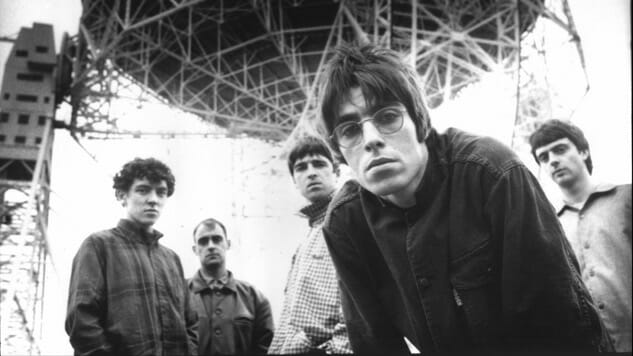How Oasis’ 1994 Hit Single “Live Forever” Changed My Life
Released 24 years ago today, Oasis' "Live Forever" was a seminal part of my teenage years.
Photo by Steve Double
You know those first few songs that changed your entire life when you were a teenager? Those songs that after hearing for the first time, became everything you’ve ever believed in and helped you find a part of yourself that you didn’t know was missing? Those songs that made you swear to your 14-year-old self that no other band’s music would ever compare to the music of your teenage years (even if you were dead wrong)?
For me, one of those songs was Oasis’ “Live Forever.” Though I didn’t hear the song when it came out on August 8, 1994 (I would’ve been -2 years old), when I encountered it in my early teens, it was a much-needed lightbulb moment. I hadn’t yet developed my passion for music at the time. I was mostly listening to what everyone else my age was listening to, which at the time, meant whatever T-Pain or Sean Kingston song happened to be popular for that month.
After stumbling on the band’s music videos on YouTube, I quickly became obsessed. I didn’t come from a family that was interested in music. I’d love to say that my parents played original Beatles, Stones and Coltrane records around the house or even that I raided my sibling’s collection of Paramore and My Chemical Romance CDs, but I can’t. All the music that I became enthralled by in my teenage years was stuff that I had dug up on my computer in solitude.
As a teen, my perception of rock music was that it only consisted of two categories: classic rock like The Beatles, Bruce Springsteen or AC/DC and whatever angsty bands were popular in the 2000s like Green Day, Panic at the Disco or Blink-182. Though I’ve since come to appreciate those two styles of rock, I had no connection to them as a teen. Classic rock was just music that boring parents listened to, and the whole pop-punk and emo thing wasn’t for me. Growing up in Ohio in the ’00s, I soon realized that most people in the states were much more interested in albums like American Idiot than an English band like Oasis who most considered past their prime.
-

-

-

-

-

-

-

-

-

-

-

-

-

-

-

-

-

-

-

-

-

-

-

-

-

-

-

-

-

-

-

-

-

-

-

-

-

-

-

-








































